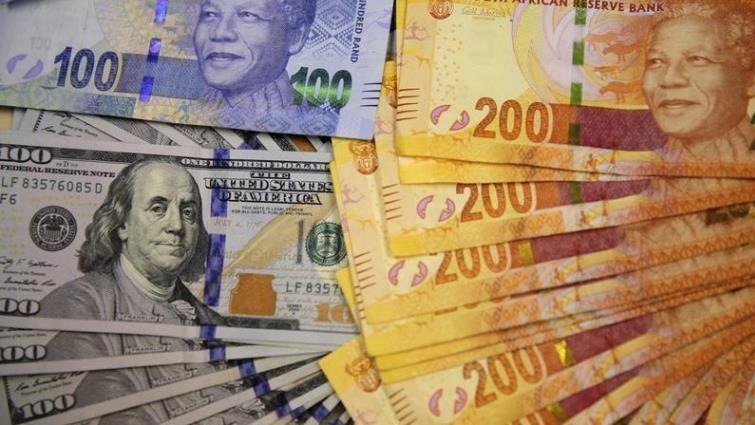The rand continues to weaken against a basket of major currencies in Asian trade and has weakened by four percent, or 70 cents, against the dollar compared with Friday’s JSE closing price.
This, as the dollar strengthens and investors withdraw funds from emerging markets, bringing the rand’s loss to around 15 percent so far this year.
Besides dollar strength, the rand is also reacting to uncertainty of the ANC’s land and economic policies.
The rand is currently trading at R14,69 against the dollar from close to R11,50 in February.
The rand reached its weakest level against the dollar so far at around R16,80 at the beginning of 2016.
EM currencies, shares hit by Turkey’s turmoil
Emerging market currencies suffered a renewed bout of selling on Monday while Asian shares were a sea of red amid a deepening crisis for Turkey’s lira, which plunged to all-time lows on concerns over a rift with the United States.
Investors fear the lira’s sell-off could have a ripple effect in global financial markets with the euro, the South African rand and Mexico’s peso already dented by Turkey’s crisis.
The lira hit a record low around $7.2400 against the dollar in early Asian trade. The South African rand skidded to a level not seen since mid-2016 and Russia’s rouble slumped to a near 2-1/2 year trough.
The Indian rupee slid to an all-time trough, while the Indonesian rupiah hit its lowest in almost three years, prompting intervention from the country’s central bank.
The wave of selling was triggered on Friday when President Donald Trump announced higher U.S. sanctions on Turkish steel and aluminium exports, causing a spike in EM FX volatility gauges.
Russian markets also felt the heat last week after a surprise sanctions move by Washington. “It is premature to stipulate how long and how much the impact will expand,” said Kim Doo-un, Seoul-based economist at KB Securities.
“I expect emerging countries, which have thorny relationship with Trump administration, could be the first ones (to) suffer from capital outflows. A strong dollar will cause some dissonance and the trend will continue throughout this week.”
Safe haven currencies and bonds rallied.
The dollar index was near a one-year top of 96.505 while the Japanese yen climbed for a second straight day to a 1-1/2 month top.
Yet, the sell-off is not limited to emerging markets: the euro stumbled to more than one-year lows on worries about European bank exposure to Turkey.
Spain’s BBVA, Italy’s UniCredit and France’s BNP Paribas have some of the largest operations in Turkey among the euro zone banks.
The fear of a contagion reverberated across markets with every Asian share index in the red on Monday.
At 0410 GMT, MSCI’s broadest index of Asia-Pacific shares outside Japan had fallen 1.7 percent while the MSCI International EM index was down 2.0 percent.
Still, some analysts see the current turmoil as an opportunity to pick up cheap assets.
“Asia should not see any contagion effect fundamentally due to the ongoing crisis in Turkey as the region does not have a meaningful exposure to the country,” analysts at Singapore’s DBS said in a note.
“We would see any meaningful correction in bond prices on the back of the Turkey developments alone, as a buying opportunity.” -Additional reporting by Reuters






